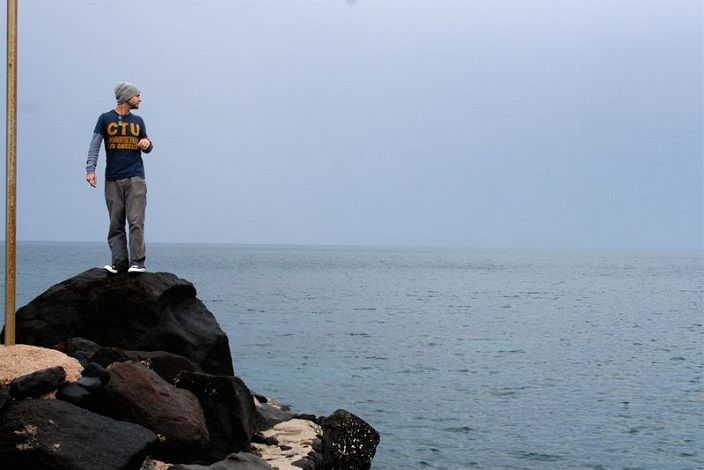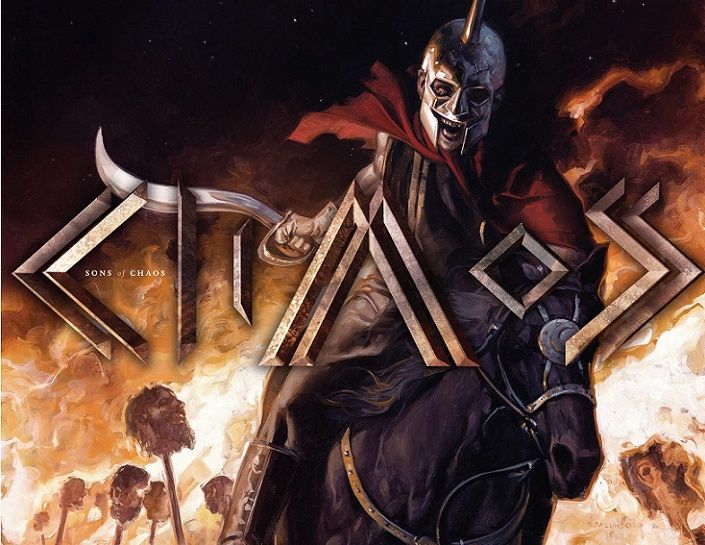
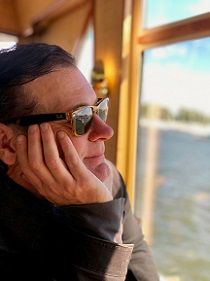
First Comics News: Why make a graphic novel about the Greek War for Independence?
Chris Jaymes: 300 seems to be one of the most prolific graphic novels presenting a historic event that many knew very little about. The format is overwhelmingly supportive of presenting the visceral elements necessary to convey the experience of battle, as opposed to a typical novel where the imagery lives only in your mind leaving you to do the work. If this medium can work for the story of an epic battle, why not an epic revolution, that in a very similar manner, very few people outside of that region know anything about. The elements that must synchronize to successfully execute a revolution and come out ahead is nearly incomprehensible, and that alone makes it a story worth telling.
1st: How would you describe Ali’s personality and does it change throughout the book?
Chris: The most obvious comparison to Ali Pasha is the Joker character. The sad reality is that he is not fictitious and his actions were carried out on actual humans at a significant cost. However, the manner in which he calculated was meticulously clever and yet, absolutely ruthless. Through the story, his awareness changes as his outwardly contained thoughtfulness grows fond of Marcos, the son of the leader of the opposition, and his agenda is influenced by this. The interesting aspect is that he still finds an equation to carry out the self-fulfilling prophecy but in a manner that back-handedly delivers an outcome that empowers Marcos. It’s as if he were a scientist working out a psychological equation using the inner circle of individuals as his lab rats unknowingly.
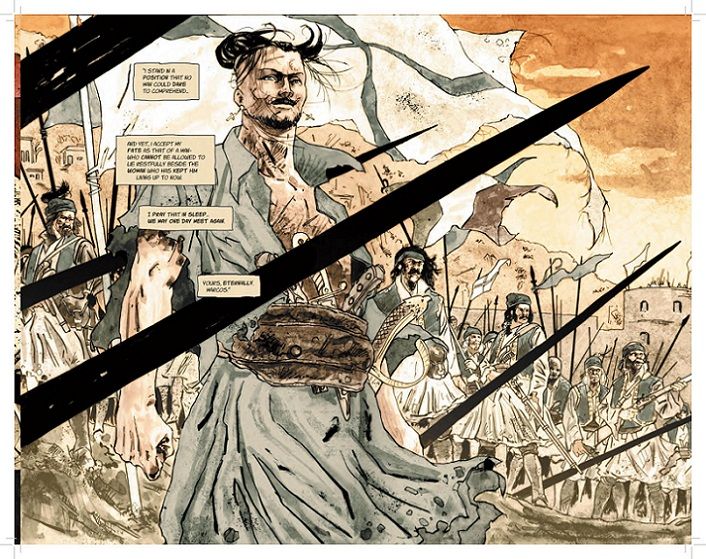
1st: Marco is the hero yet he is portrayed as a realistic person so what makes him a hero?
Chris: His heroism stems from his reluctance to embrace the ideology of those around him and then relinquish that reluctance to serve the greater good at his own expense. In actuality, Markos Botsaris was significant in many ways. His capacity to live highly on multiple levels, as a leader, an academic, and someone who was concerned and engaged at larger picture goals was atypical of someone you’d think of as a war hero. Beyond fighting a revolution, he and his family built Greek-Albanian dictionaries, and poets and musicians built up his legacy. In the book, he’s presented as a human, as the sense I attain from the research I’ve done seems to paint a picture of a thoughtful human who was looked past the surface of the circumstances he was born into. That said, the typical idea of a hero seems somewhat naïve at times, and the moments in my life that have reflected something heroic were nothing more than carrying out an action regardless of the internal inclinations that were pulling to avoid what I was facing. A hero often steps into the light of heroism unknowingly and with reluctance. However, if the individual stays engaged regardless of fear, and is carrying out an action for the greater good at the expense of themselves, it may be seen as heroic, but it’s still a human at the core that questions themselves at the end of the day, and lives with doubt and uncertainty.
1st: How action packed is this graphic novel?
Chris: Pretty packed I would say. Not only within the sheer number of battles and slaughters, but within the internal conflict of the characters. There are only a few areas in the book that slow down a bit while the characters are living within moments between the chaos. But I’d say, it plays out with a pretty constant level ongoing brutality.
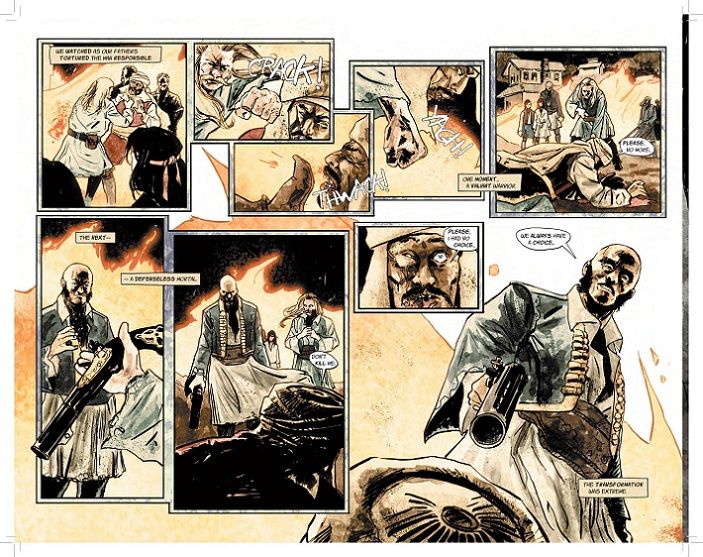
1st: Did you do any research on the Ottoman Empire?
Chris: The aggressively active portion of the research stage went on for about six months, but the ongoing research for a couple of years. Initially, I learned a good amount about the region and various elements that set the tone leading into 1821 when the revolution took place. That said, once I honed in on the story I wanted to tell, I was much more focused on the characters I chose to follow.
1st: Why does Ali become obsessed with Marco?
Chris: In a sense, behind his personification, he is alone. His fearlessness to inflict brutality on others stems from a protective mental shield that is masterful at dehumanization from an immense amount of suffering as a child born into a family and a circumstance that was the antithesis of gentle. You must remove the quality of aliveness from the human in order to eradicate the concept of empathy to carry out the action that he did. And inevitably, behind all of psychological survival tactics, you are alone. In Marcos, he sees himself and his aloneness as a child and for the first time experiences a quiet empathy that he decides to embrace knowing that his life is coming to it’s final stages.
1st: Which character did you find yourself caring about the most?
Chris: Hard to say, as they are all equally alive, and struggling with a similar helplessness, yearning for the chaos to settle, both internally and externally. I understand each of their needs and each of them are equally vulnerable wanting desperately to be loved. Be it from their father, their sister, the son, or the mother. These characters are working so hard to find confirmation that they are doing something right, each on extremely different planes, while the inner need for acceptance and approval is the same.
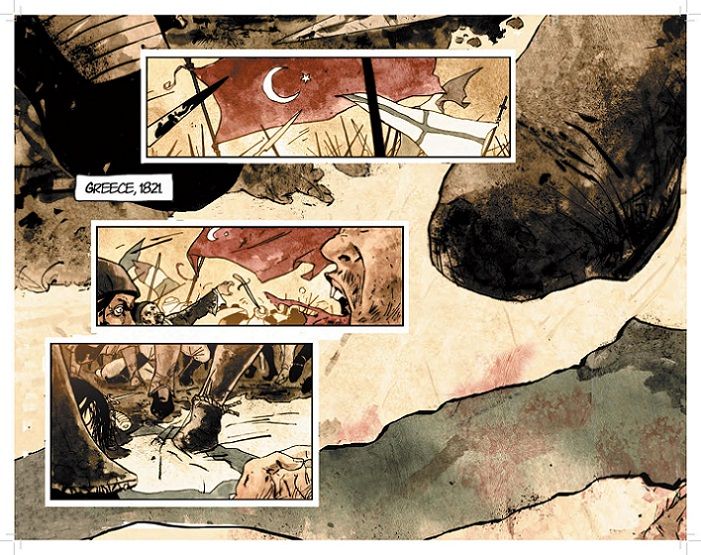
1st: What aspect of the entertainment industry have you most enjoyed?
Chris: Directing films is amazing when you have a team of people that you love surrounding you, and a story you’re excited to tell. Playing music is one of the best things imaginable when you love the band you’re playing with, and even better when you are changing the state of a building full of people. Probably, the thing about everything I have done that keeps me engaged is the lack of awareness of how anything is going to work and come together. In the beginning, an idea is just that. Nobody knows about it and nobody cares about it. It’s nonexistent until you bring it to life and in the beginning it seems and feels ambiguous and impossible. Then somehow, with force and relentlessness, over time you see a form take shape and evolve… and all of a sudden it exists. And even if it’s only doing so on a small level, there are always moments where you witness it affecting someone. Making them think, or have an idea, of inspiring something that wouldn’t have happened if you hadn’t put in the time and energy.
1st: How do you feel about animals such as dogs and dolphins?
Chris: Hahahaha… They have taken far more time and energy than I could’ve ever foreseen. I’ve had dogs my entire life aside from this moment. My dog of 15 years died last year and I’ve been in motion too much to responsibly get a new one. But she was with me everywhere, and unlike the workload of attaining joyous moments amidst the driving grind to push forward, with my dog the joy of seeing her happy was more fulfilling than most of my biggest achievements. Watching her face light up and proudly head down the street carrying a stuffed squirrel made me feel like my day had purpose no matter what else I achieved. So yeah, big part of my life. And the dolphins came later, however I was drawn to them since childhood and always yearned for an arena where I could learn more about them. So when I started developing the story Unconditional (you can see on chrisjaymes.com) it was the first time I actively starting spending time with them, researching and learning about who they are and how they function. They are layered and amazing and the connectivity is similar to that of my dogs in some ways, but it will never be the same. Your dog lives with and near you throughout most of your days, where ocean dwelling animals, even if you are rescuing one, you leave it on it’s own for a part of every day, and there will always be a separation that forces a distance in the dynamic. But still amazing and rewarding in it’s own right. The past year I’ve been expanding it to sharks, which has been surreal. Spending time swimming freely with dozens at a time, dropping off a boat miles from shore is absolutely dreadful at first, but once you understand the simplicity of the behavioral patterns of a shark, I feel safer with them than most humans.
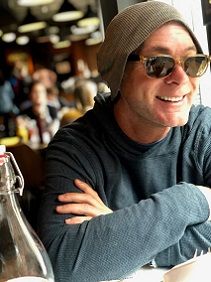 1st: Would you like to live in 1821 for a short time in Greece?
1st: Would you like to live in 1821 for a short time in Greece?
Chris: Most likely not. Hahah The brutality and the harsh reality of war and oppression sounds awful when you’re born into a generation of comfort, convenience, and abundance. Not referring to money abundance, or wealth, but when you are born into a time of warfare, there is a reality that we can’t comprehend. We have been living in a time of luxury problems in all directions. Your emotions and technology and things not working out exactly to your liking without having to put more work in, are the things that we typically face daily, outside of health challenges which are there for all generations. We have it easier than ever which is most likely why we are the generations doing the most damage to the world. When you don’t have real problems, and entitlement grows, and unfortunately will probably remain until we have created real problems again.
1st: What would you like to say to those who enjoyed “Sons of Chaos”?
Chris: Thank you so much for putting the time in to read what we’ve created. Hopefully, there’s something insightful in there somewhere for you, and if not, I hope it was at least somehow entertaining enough that your day hasn’t been ruined.
